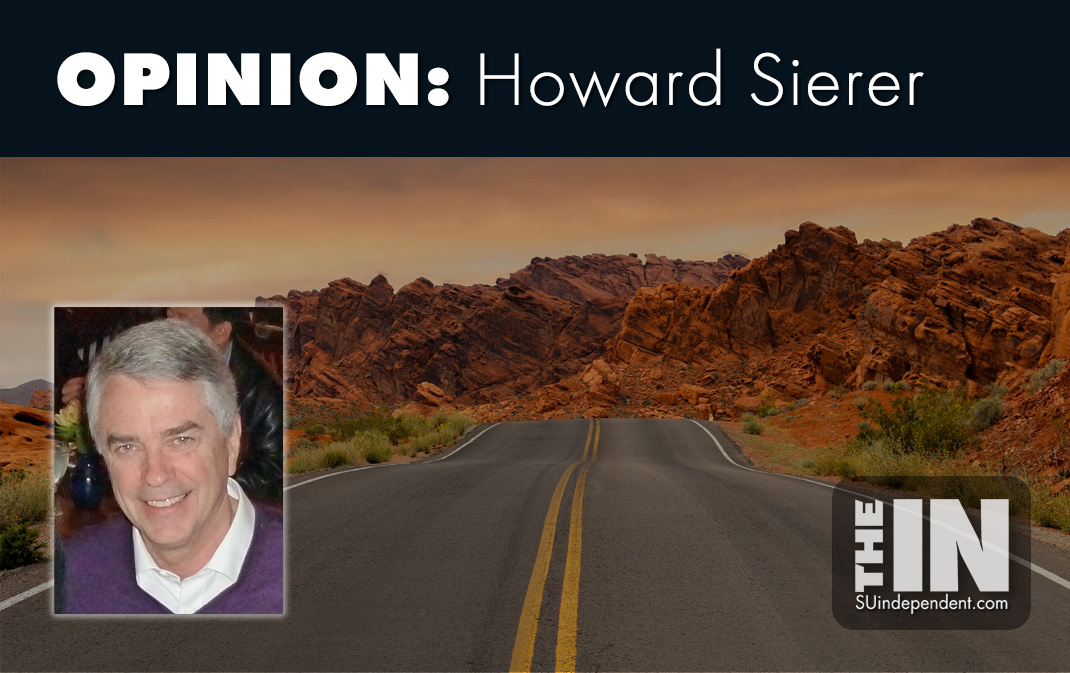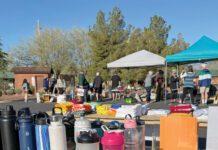
2023’s Most Widely Read Columns
– By Howard Sierer –
Here’s a quick summary of some of my most widely read columns of 2023.
Utah Continues to Lead the Nation
Utah continues to set the standard for the country in a number of ways: most recently, our growing economy, our low unemployment, our volunteer hours, and our freedom-to-choose K-12 education.
Best-in-the-nation rankings came from national firms like Wallet Hub, Moody’s Analytics, the U.S. Department of Labor, and the federal government’s “Volunteering and Civic Life in America.”
DEI Defined: Unanimity, Inequality and Exclusion
DEI – Diversity, Equity, and Inclusion – is all the rage among woke progressives in academia and the leftist media. A quick look reveals how it is implemented in practice: unanimity, inequality, and exclusion.
Almost all universities and colleges in the country today have DEI offices, deans, and vice presidents. A review of 65 large universities found an average of 45 DEI staff members at each school, about one for every 30 professors. Alarmingly, what started with universities and the progressive elite is now being replicated in our federal government.
Preferential treatment based on race, ethnicity, gender, and sexual orientation is blatant discrimination, pure and simple.
Progressive Cities in a Death Spiral
Cities governed by progressive elected officials are spiraling down the drain, socially and economically.
New York, Chicago, San Francisco, and others defunded their police, turned their jails into revolving doors for repeat offenders, and catered to teachers’ unions and public employees while driving businesses away with ever-higher taxes and fees. The predictable result: middle-class residents of all races are voting with their feet.
America’s big cities are increasingly steered by the interests of government unions and those who depend on the government dole.
Bud Light, Target, and the Role of Business
All but the smallest and niche-oriented businesses have employees with a wide variety of social and political views, none of which have direct bearing on their performance as employees. Likewise, a business serves customers whose social and political views run the gamut.
Becoming an advocate for social or political issues is a bad idea for business, period. My advice to companies: stick to your knitting, don’t be what Budweiser now calls “part of a discussion that divides people.”
Will Slavery Reparations Work?
A look at past well-intentioned but flawed attempts at reparations in various forms shows that they not only didn’t work but actually made black outcomes worse.
Today’s rebirth of the reparations movement is another evidence that the progressive left’s focus on race isn’t about improving race relations but instead is about enhancing progressive power by convincing black Americans that they are victims who need government protection.
Are Utah Cities or Developers Calling the Shots?
Who do you think should decide whether a residential development fits into your city’s “look and feel:” your city council or the developer? I was stunned to discover that our state legislature made that decision in favor of developers.
It’s clear that new construction has been flourishing for years everywhere in Southern Utah. The pace of construction is constrained by labor and materials availability, not city approvals. Lower approval costs flow almost entirely to developer bottom lines in today’s overheated housing market.
Systemic Racism Hiding in Plain Sight
It’s the real civil rights issue of our time. Progressives who seem to find systemic racism wherever they turn are nonetheless leading supporters of powerful establishment organizations that have systematically and disastrously disadvantaged tens of millions of black Americans, all in plain sight.
This “systemic” or built-in racism has been foisted off on a large portion of the 20 million blacks who live in urban areas. The racist culprits: entrenched and way-too-powerful teachers’ unions that stand firmly in the way of solutions such as charter schools that have proven to provide a far superior education to that available in union-dominated, failing public schools.
Utah Will Never Run Out of Water
Our state’s farmers and ranchers generate less than 1% of our state product, employ 2% of our workforce, yet use 82% of our water. While some of that water is used to produce locally-grown food and dairy products, a stunning 68% of our state’s water is used to irrigate alfalfa, a water-intensive crop that represents a minuscule 0.2% of our economy!
Changes to Utah’s “use it or lose it” water laws could allow farmers and ranchers to sell portions of their water rights to county and municipal water supply agencies without losing the balance of those rights. When they see that their water really is a marketable asset, water rights holders could make rational and cost-effective choices that benefit all of Utah’s citizens.
Viewpoints and perspectives expressed throughout The Independent are those of the individual contributors. They do not necessarily reflect those held by the staff of The Independent or our advertising sponsors. Your comments, rebuttals, and contributions are welcome in accordance with our Terms of Service. Please be respectful and abide by our Community Rules. If you have privacy concerns you can view our Privacy Policy here. Thank you!
Click here to submit an article, guest opinion piece, or a Letter to the Editor




